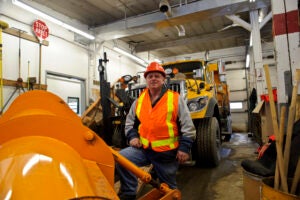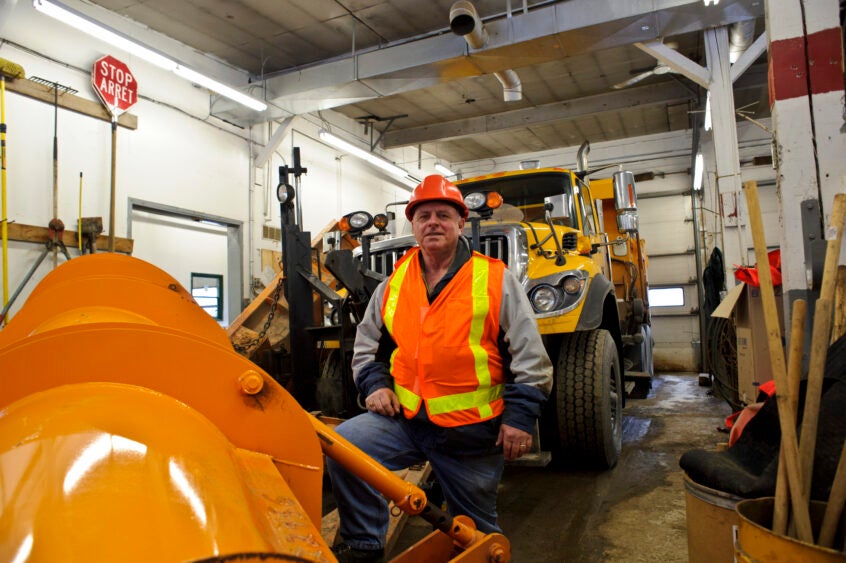Fredericton, NB – Wednesday, CUPE Local 1190 held a press conference to announce that the NB Labour and Employment Board just declared a formal deadlock in contract talks between the union and the provincial government.
CUPE 1190, which represents over 2100 members such as labourers, park employees, mechanics, equipment operators, maintenance repair workers, maintenance, and tradespeople, has expressed frustration over the government’s unwillingness to offer fair and equitable wages. As a result, a strike could commence as early as late July, potentially impacting vital services such as provincial parks, ferries, and provincial road and bridge repairs/operations.
Jonathan Guimond, President of CUPE 1190, voiced his disappointment with the government’s stance. “Our collective agreement has been expired since December 2022. Despite years of record surpluses, this government has shown no appetite to address the wages of some of the lowest-paid tradespeople in the country,” said Guimond. “We have been in bargaining talks with GNB since November 2022, and we moved quite a bit from our original demands, but the province has not reciprocated.”
The negotiations have been ongoing for 19 months without reaching a satisfactory conclusion. This prolonged period of fruitless discussions has pushed the membership’s patience to its limit. “We do not want to repeat 2021 when GNB sat on an expired contract for over four years until workers forced them to move with a strike,” Guimond added.
The median wage for a Local 1190 member is $25.44 an hour, with over 50% of the membership in lower-paid classifications, such as park employees and labourers, earning as little as $20.67 an hour, and higher-paid classifications, such as communications supervisors, earning $33.33 an hour. GNB’s last bargaining package had wage adjustments totalling $3.25 an hour of increase at the end of a four-year contract (2022-2025) for someone earning the median wage of $25.44. “That means even lower increases for 50% of the membership earning less than that hourly wage, which does not address the cost-of-living pressures felt by workers,” said Guimond.
“The government’s proposed wages are insufficient to deal with recruitment and retention. They fail to recognize how investing in our frontlines will save our province money,” said Guimond. “They recognize this at the municipal level, where trades peoples along with other classifications in municipalities such as Edmundston, Moncton, Saint John, and Fredericton, earn nearly $5 to $10 more per hour,” he added.
The union’s official last pass in bargaining was at $7.25/hour and other benefits by the end of a three-year contract. In a final attempt to avoid job action, the bargaining team presented a one-time opportunity of a $6 wage increase and other benefits over four years, which the employer turned down on June 28. Consequently, the union filed for a deadlock.
If the employer does not show a willingness to have constructive talks, CUPE 1190 will move ahead with strike votes over the next few weeks. “Enough is enough, this government cannot ignore blue-collar workers any longer,” Guimond emphasized.
Despite the deadlock, the union remains hopeful that constructive talks can resume so a strike is avoided. “We don’t want to see picket lines going up this summer, which would create disruptions for residents in parks, ferries, and highway operations. Rather, workers want a fair contract,” said Guimond. “We call on the government to engage in negotiations that respect the value of workers and acknowledge the retention issues and cost-of-living realities they face.”
CUPE 1190 represents over 2100 general labour and trades workers throughout New Brunswick, working in more than eight departments, with the bulk of the membership employed by the Department of Transportation and Infrastructure and the Department of Tourism, Heritage, and Culture (provincial parks). This includes classifications such as machinists, labourers, school bus/truck and equipment mechanics, welders, heavy equipment operators, artisans, healthcare linen/laundry drivers, bridge workers, maintenance workers, provincial ferry operators, NB housing workers, and many more.

